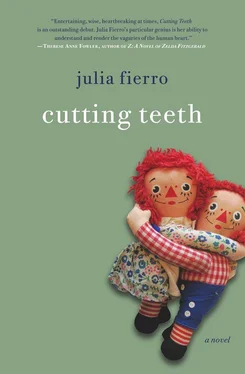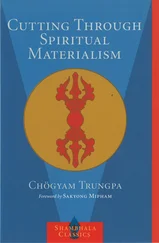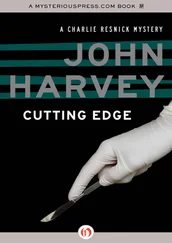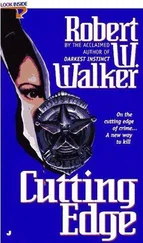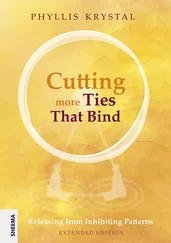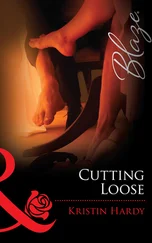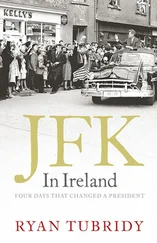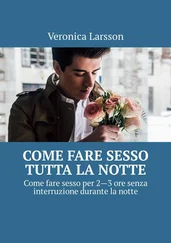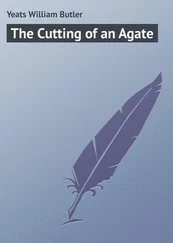Don’t touch me, Leigh wanted to say. Tiffany’s apology was as fake as her engagement ring, which she claimed was IF grade and two carats, supposedly inherited from Michael’s grandmother. Leigh had been embarrassed for Tiffany when she told Leigh this; the ring was obviously flawed and no more than a carat and a half. But she’d said nothing. She’d been kind. Now, she wanted to fling the lie back in Tiffany’s face. Remind her that she, Leigh, was a Locust Valley Lambert who could spot a good diamond from ten feet away.
“I’m going to find a cigarette,” Tiffany said. “Allie looks like a smoker, doesn’t she? Be right back.”
Before Leigh could answer, Tiffany shimmied off the deck and into the house.
Leigh stared at the clots of thick cloud that seemed to float atop the water and thought of her family’s country house in Sag Harbor — the lawn that rolled into the sea and the swarms of fireflies that lit upon it in the blue dusk. She wondered if she would see it again.
Tiffany had been the only one she’d trusted. The only mommy to whom she’d bared her soul. The only one who praised her parenting, who soothed her guilt.
Don’t be so hard on yourself. You’re doing your best.
And there had been the months of late-night texts, the two women tapping out secrets and confessions to each other for hours. All the affection that poured from Tiffany, the empathy via cartoony emoticons. Little red hearts. Smiling suns. Smiley faces with their mouths pursed as if blowing a kiss. I Love Uand U r the bestand BFFs 4evah.Tongue-in-cheek, of course, Leigh knew, but Tiffany had chosen her from all the other mommies. The more confident, educated, hipper, and wittier masses of mommies who filled their neighborhood playgrounds and playspaces.
Tiffany was her only friend.
waste not, want not: Tenzin
Tenzin examined the half-eaten bananasitting on top of the trash, still wrapped in its skin and nestled in a pile of used coffee grounds and globs of yogurt. She glanced out the kitchen window and counted, one, two, three mommies. One, two, three daddies. She wasn’t sure if Allie was to be called a mommy or a daddy.
The coast is clear, she thought, a phrase she had heard on an American television show.
She stepped closer to the trash can.
After breakfast, during cleanup time, Tenzin had watched Susanna hold the half-eaten fruit by her thumb and finger — the same way the mommies held the poopie and peepee diapers of the children ( peeyou! ). Susanna had complained about the smell, gagging as she exiled the perfectly good banana to the trash.
They were a mystery, these lesbians and their life. The night before, Tenzin had asked Leigh if it was okay to give Susanna and Allie congratulations on their wedding. Leigh had laughed, “It’s not a secret, Tenzin. Of course you can!”
Tenzin had tried to explain they didn’t have lesbians in Tibet, but Leigh had looked at her in the same way you look at a silly child.
Poor Mommy Susanna, Tenzin thought as she stared at the banana. So much throwing up of food. That morning, Tenzin had walked on the beach with Susanna, while Chase and the twins played pirates with sticks of driftwood. Susanna had invited Tenzin to visit the twins’ home in Brooklyn, to see if she was a good match. Tenzin had added this to her vocabulary list to look up later, but Nicole had told her that the twins’ mommies needed someone to watch the new baby, and so Tenzin had guessed the walk was a kind of interview. She knew she had passed Susanna’s test because the woman had hugged her afterward, her swollen belly pressing into Tenzin’s own belly, soft and slack from three pregnancies. It had sparked a brief, but bright, yearning in Tenzin for a baby. A child who would never know a day apart from its mother.
Now, staring at the banana, Tenzin felt her mood sink. She and Leigh, and maybe the other mommies, too, were due for their flow. Women everywhere, in Tibet, in India, in America, when the routine of women’s lives matched, so did their cycle. She wanted to blame her tears during her last Skype with her family on this.
In one swift movement, Tenzin plucked the banana from the garbage, peeled back the mottled brown skin and ate the remaining fruit in two big bites.
“Tenzin?”
She turned to face Leigh, who stood with her mouth open, an alert and sweaty Charlotte in her arms. Leigh’s face was red with what Tenzin guessed was too much sun, but as her good employer walked closer, Tenzin saw it was the flush of emotion that pinked Leigh’s cheeks.
Tenzin smiled with her eyes and nodded, pointing to her banana-stuffed mouth.
“The baby’s up,” Leigh said.
The concern on Leigh’s face made Tenzin wish she could give her good employer a great big squeezie-hug, just like the kind Chase’s therapist had taught her to give Chase when he was so excited that his hands shook, and he clucked like a little chicken.
“You didn’t have to eat that, Tenzin.”
“Yes, I do. No biggie.”
She thought of the two-day-old rice she once ate from out of Leigh’s garbage. There was nothing wrong with the rice, and Tenzin had wondered if the newspaper laid over the mound of rice had been too neatly placed, as if Leigh had been trying to hide her wastefulness. The Dalai Lama says not to waste life, then why not avoid wasting anything at all?
Leigh had passed on many things to Tenzin. A set of pots and pans the color of poppies, flawless but for a few scratches. A plastic pitcher for cold tea Leigh no longer used. A pretty diaper-wipe holder with a Velcro flap that Tenzin used as a purse. Tiffany had given her dresses that wrapped around your body and tied at the hip, and red clogs so shiny Tenzin only wore them to temple on Wednesdays and Saturdays.
God had been so good to her. Why should she choke on perfectly yummy two-day-old rice and stale cereal and cans of cold beans past the expiration date? This is what she ate for lunch at Leigh’s house, choosing an item she predicted might be thrown away because it had sat in the cupboard too long, or because Leigh had found a brand she liked better.
“Okay,” Leigh said. “That was terrible to throw away food like that.” She paused, closing her eyes. “I’m sorry, Tenzin.”
Leigh was still wearing the same shocked look, and Tenzin knew it had nothing to do with her eating the rescued banana. There was something wrong.
“Tenzin,” Leigh said. She stopped and wiped at her face with baby Charlie’s swaddle cloth. “I’m so happy you are here with us.”
Her good employer was near tears.
Tenzin had seen this expression on the faces of protesters in India outside the Chinese embassy, as gangs of officers approached, destined to leave many broken and bloodied in their wake.
Terror.
The protesters had not run, even as the officers’ approaching boots made the ground tremble. They sang of the sun, moon, and stars, songs that would have had put Tenzin and her husband Lobsang on trial in China, maybe cost them their lives. Tenzin had sung the forbidden name of her God-King, the Dalai Lama. It had been her last protest before leaving India for America, and she had sung until her throat ached and sweat and tears darkened the front of her silk chuba. She’d felt fierce and satisfied — praising him, the great Sun — but she had also felt broken, for she and all the Tibetans were homeless.
The mommies, even sweet Leigh, did not understand. Tenzin, they laughed politely, but you’re not homeless! How could she explain, or make them understand, that it was only in exile in India, far from the Chinese government, that she would dare sing of how the sun, moon, and stars are no longer in Tibetan lands. The lands are dark, and we are very sad that we can’t see them.
Читать дальше
